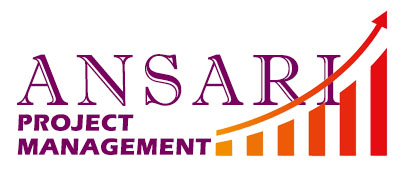1. What are the main problems associated with diagnosing Alzheimer's disease accurately and early?
The main problem with diagnosing
Alzheimer's disease is that its early symptoms are often overlooked or confused with normal aging. Additionally, there is a lack of reliable and accessible diagnostic tools.
2. How can studying the book "Alzheimer Easy Diagnosis Solutions" help you?
Studying this book can provide you with a deep understanding of the various diagnostic methods and solutions available for Alzheimer's disease. It can equip you with the knowledge to detect the early signs and symptoms and seek professional help promptly.
3. What specific solutions does the book offer for diagnosing Alzheimer's disease more easily?
The book outlines several solutions, such as the utilization of advanced neuroimaging techniques, genetic testing, cognitive assessment tools, and biomarker analysis. It provides insights into these methods and their benefits for accurate diagnosis.
4. Why is it necessary to detect Alzheimer's disease early?
Detecting Alzheimer's disease early is crucial because it allows for the implementation of appropriate interventions, such as medication, lifestyle changes, and caregiver support. Early diagnosis can also provide individuals with the opportunity to make informed decisions regarding their future healthcare and financial planning.
5. What are the potential consequences of delayed or inaccurate diagnosis of Alzheimer's disease?
Delayed or inaccurate diagnosis can lead to a range of negative consequences, including missed opportunities for treatment, increased burden on caregivers, financial strain, and impacts on the individual's quality of life.
6. How can the book help you become more aware of the symptoms that might indicate Alzheimer's disease?
The book describes the common symptoms of Alzheimer's disease, such as memory loss, confusion, disorientation, and changes in behavior and mood. By studying the book, you can learn to identify these symptoms early on and take appropriate action.
7. Can studying this book help you become an advocate for better Alzheimer's disease diagnosis?
Absolutely! By studying the book, you can gain knowledge about the challenges associated with Alzheimer's diagnosis and the available solutions. Armed with this knowledge, you can raise awareness, advocate for better diagnostic tools, and support others who may be affected by the disease.
8. How does the book address the stigma surrounding Alzheimer's disease?
The book highlights the importance of reducing stigma surrounding Alzheimer's disease by promoting accurate diagnosis and understanding the experiences of those affected. It emphasizes the need for compassionate and supportive communities.
9. Are there any case studies or real-life examples in the book that demonstrate the impact of early diagnosis?
Yes, the book provides case studies and real-life examples that showcase the positive outcomes of early diagnosis. These examples help to illustrate how early intervention can improve quality of life and delay disease progression.
10. Does the book provide resources or information on support networks for individuals diagnosed with Alzheimer's disease?
Yes, the book includes a section on resources and support networks available for individuals diagnosed with Alzheimer's disease. It provides information on caregiver support groups, healthcare professionals, and community organizations that specialize in supporting those affected.

you can gain a better understanding of Alzheimer's disease diagnosis
11. How can the book help you navigate the complexities of Alzheimer's disease diagnosis?
The book offers a comprehensive overview of the complexities surrounding Alzheimer's disease diagnosis. It educates readers about the different diagnostic criteria, techniques, and challenges involved, providing a roadmap for understanding the process.
12. Can studying this book help you have more informed discussions with healthcare professionals?
Yes, by studying this book, you can gain a better understanding of Alzheimer's disease diagnosis and the available solutions. This knowledge can empower you to ask more informed questions and engage in meaningful discussions with healthcare professionals.
13. What role can early diagnosis play in helping research efforts towards finding better treatment options for Alzheimer's disease?
Early diagnosis can contribute to research efforts by identifying individuals at earlier disease stages who can participate in clinical trials, helping to develop and test potential treatments. It can also provide researchers with valuable insights into disease progression.
14. How does the book promote the importance of holistic approaches to Alzheimer's disease diagnosis?
The book recognizes that Alzheimer's disease diagnosis goes beyond medical tests and procedures. It emphasizes the importance of considering lifestyle factors, mental health, caregiver support, and societal attitudes for a more holistic approach to diagnosis and care.
15. Can studying the book help you understand the potential risks and benefits of different treatment options?
Yes, the book covers various treatment options available for Alzheimer's disease. By studying it, you can gain insights into the potential risks and benefits of different treatments, enabling you to make more informed decisions for yourself or your loved ones.
16. Are there any innovative technologies or approaches discussed in the book that could significantly improve Alzheimer's disease diagnosis?
Yes, the book explores cutting-edge technologies and approaches, such as artificial intelligence, wearable devices, and remote monitoring systems. These advancements have the potential to revolutionize Alzheimer's disease diagnosis and improve its accuracy.
17. How can accurate and early diagnosis of Alzheimer's disease help alleviate the financial burden on individuals and families?
Accurate and early diagnosis allows individuals and families to plan for the financial implications of Alzheimer's disease. It helps them access support services, navigate insurance coverage, and make informed decisions about long-term care options, ultimately reducing the financial burden.
18. Does the book highlight any preventive measures or lifestyle changes that may reduce the risk of developing Alzheimer's disease?
Yes, the book dedicates a section to preventive measures and lifestyle changes that may reduce the risk of developing Alzheimer's disease. These include regular exercise, a healthy diet, mental stimulation, social engagement, and managing cardiovascular health.
19. How does the book encourage a proactive approach to Alzheimer's disease diagnosis?
The book emphasizes the importance of taking a proactive approach to Alzheimer's disease diagnosis. It encourages individuals to pay attention to early warning signs, seek comprehensive assessments, and actively engage with healthcare professionals throughout the diagnostic process.
20. Can the book be useful for caregivers looking to better understand the diagnostic journey of their loved ones?
Absolutely! The book can provide caregivers with valuable insights into the diagnostic journey of individuals with Alzheimer's disease. It offers information, resources, and a deeper understanding of the challenges involved, empowering caregivers to provide better support.

different diagnostic tests used in Alzheimer's disease diagnosis
21. How can the book help you make sense of the various diagnostic tests and their benefits and limitations?
The book explains different diagnostic tests used in Alzheimer's disease diagnosis, such as brain imaging scans, genetic testing, and cognitive assessments. It discusses the advantages and limitations of each test, enabling readers to make sense of the available options.
22. Does the book address any ethical considerations related to Alzheimer's disease diagnosis?
Yes, the book addresses ethical considerations related to Alzheimer's disease diagnosis, such as informed consent, privacy, and the implications of genetic testing. It promotes an ethical framework for the diagnostic process.
23. Can studying this book help you become more empathetic and understanding towards individuals with Alzheimer's disease?
Yes, by studying this book, you can gain a deeper understanding of the challenges faced by individuals with Alzheimer's disease. This knowledge can foster empathy and help you provide better support, both as an individual and as a member of the broader community.
24. How does the book encourage individuals to be proactive about their brain health?
The book emphasizes the importance of maintaining brain health and encourages individuals to take proactive steps towards preventing or detecting Alzheimer's disease early. It offers practical strategies and lifestyle recommendations to support overall brain health.
25. Can studying this book help you debunk common misconceptions about Alzheimer's disease diagnosis?
Yes, the book provides evidence-based information that can help debunk common misconceptions about Alzheimer's disease diagnosis. It presents accurate and up-to-date knowledge, enabling readers to challenge and correct misinformation.
26. How does the book promote collaboration between individuals, healthcare professionals, and researchers in the field of Alzheimer's disease diagnosis?
The book recognizes the importance of collaboration and promotes it as a key aspect of advancing Alzheimer's disease diagnosis. It emphasizes the need for partnerships between individuals, healthcare professionals, and researchers to drive improvements in diagnosis and care.
27. Can studying this book help you make more informed decisions about your own brain health?
Yes, studying this book can provide you with the knowledge and tools necessary to make more informed decisions regarding your brain health. It offers evidence-based information that can influence your lifestyle choices and the preventative measures you take.
28. How can studying this book contribute to creating a more dementia-friendly society?
By studying this book, you can become equipped with the knowledge to advocate for better diagnostic practices within society. This knowledge can help build a more dementia-friendly society that is understanding, supportive, and inclusive of individuals with Alzheimer's disease.
29. Does the book touch on the importance of early interventions and treatments available for Alzheimer's disease?
Yes, the book emphasizes the importance of early interventions and treatments for Alzheimer's disease. It discusses various medical, cognitive, and lifestyle interventions that can help individuals maintain their cognitive function and quality of life for as long as possible.
30. Can studying this book foster a positive mindset and provide hope for individuals and families affected by Alzheimer's disease?
Yes, the book can foster a positive mindset by providing hope and possibilities for individuals and families affected by Alzheimer's disease. By understanding the diagnostic solutions and the progress being made in the field, it can inspire optimism and resilience.
Dear Visitor; Please take a look at the list of 50 most visited websites in the world wide web: YouTube, Facebook, google, translate, gmail, weather, amazon, Instagram, cricbuzz, Hotmail, wordle, satta king, twitter, yahoo, yandex, sarkari result, Netflix, google maps, yahoo mail, roblox, whatsapp, NBA, BBC news, outlook, pinterest, flipkart, eBay, omegle, live score, tiktok, canva, ipl, premier league, hava durumu, ibomma, walmart, twitch, ikea, shein, linkedin, home depot, e devlet, lottery, snaptik, cricket, serie a, nfl, spotify, fox news, amazon prime; There is no book publishing related or project management website in this list. We are working hard to bring these important issues to the center of concentration of societies. Please introduce us via social media, share our website with others and help us to make our world a better place to live. Best Regards.













Write your review